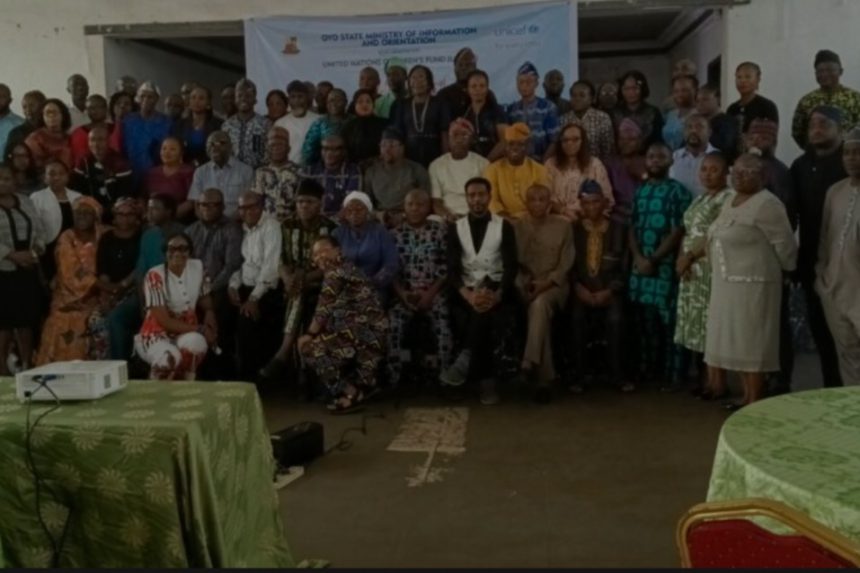The Oyo State Ministry of Information and Orientation, in partnership with the United Nations Children’s Fund (UNICEF), on Tuesday flagged off a three-day emergency preparedness workshop aimed at strengthening response strategies to flooding and cholera outbreaks across the Southwest and Edo State.
The workshop, held in Ijebu-Ode, Ogun State, is titled “A 3-Day Multi-Sectoral Emergency Preparedness Workshop for States Under Lagos Field Office; Strengthening Readiness for Flooding and Cholera Response.”
It has drawn participants from disaster management agencies, government institutions, and the media across Oyo, Ekiti, Lagos, Ogun, Ondo, Osun, and Edo states.
Welcoming participants, the Permanent Secretary, Oyo State Ministry of Information and Orientation, Mr. Rotimi Babalola, said the forum was convened to forge stronger collaboration among key actors in public health and disaster management. According to him, the rising risks of flooding and cholera demand urgent, coordinated, and multi-sectoral action.
“Emergencies do not give prior notice. They demand timely response, knowledge sharing, and sustained collaboration,” Babalola said. “This workshop provides a unique platform to build stronger readiness to save lives, reduce risks, and safeguard our communities.”
Babalola commended UNICEF for its technical support, expressing optimism that the skills and strategies developed during the workshop would be translated into practical, state-level action. He added that the participants’ commitment was “a testament to our shared vision of a safer and healthier society.”
In his remarks, UNICEF’s Planning, Monitoring and Reporting Specialist, Oluwasola Olanipekun, outlined the workshop’s objectives: to strengthen coordination during emergencies, ensure children, women, and vulnerable groups are prioritized, and promote swift, standardized responses to crises.
Delivering a technical presentation, Mr. Olayinka Afolabi, UNICEF Emergency Specialist in Abuja, blamed recurring cholera outbreaks and flood-related health crises on poor sanitation and open defecation in many communities. He warned that Lagos, Ogun, Oyo, and Osun remain among the most cholera-prone states, citing the National Emergency Management Agency’s (NEMA) recent risk analysis.
According to Afolabi, as of July 2025 (week 30), 64 suspected cholera cases were reported nationwide, with no fatalities, a 74 percent decline from the previous week. However, cumulative figures from January to July showed 4,708 suspected cases and 113 deaths, across 35 states and 199 local government areas, representing a case fatality rate of 2.4 percent.
He identified four pillars of emergency preparedness planning, risk analysis, scenario mapping, anticipated response, and proactive preparedness. While stressing that disasters are inevitable, Afolabi lamented that poor readiness continues to worsen their impact and delay recovery efforts.
“Preparedness is not optional; it is essential,” he said, urging governments at all levels to adequately equip disaster management agencies, strengthen preventive action, and sustain investments in resilience-building.
The workshop will run through Thursday and is expected to produce a joint action plan for the participating states on how to reduce flood and cholera risks ahead of the next rainy season.







